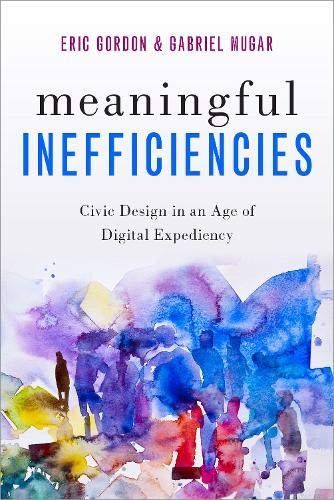
Meaningful Inefficiencies Designing for Public Value in an Age of Digital Expediency
"Public trust in civic organizations is low. And many public serving organizations (government, news, civil society) assume that greater efficiency will build trust. As a result, they are quick to adopt new technologies to enhance what they do. However, efficiency, in the sense of charting a path to a goal with the least amount of friction, can sometimes be at odds with the goal of building trust. This book is about those practices that challenge the normative applications of "smart technologies" in order to build or repair trust with publics. Based on over sixty interviews with changemakers in public serving organizations throughout the United States, as well as detailed case studies, this book provides a practical and deeply philosophical picture of civic life in transition. It is a book about design, but not necessarily about designers. Without coordinating, these civic designers embedded within organizations have adopted an approach to public engagement we call "meaningful inefficiencies," or the deliberate design of less efficient over more efficient means of achieving some ends. This book illustrates how civic designers are creating meaningful inefficiencies in less than ideal conditions and encourages a rethinking of how innovation within public serving organizations is understood, applied, and sought after. Different than market innovation, civic innovation is not just about invention and novelty, it is concerned with building communities around novelty, and cultivating deep and persistent trust. It involves a plurality of publics (not just a single public good); it creates the conditions for those publics to play; and it results in people caring for the world. Meaningful Inefficiencies describes an emergent approach to creating civic life at a moment when smart and efficient are the dominant force in social and organizational change"--